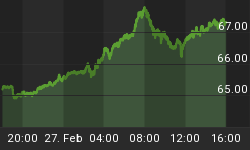In Memory of My Father
Frederick J. Sheehan
July 27, 1924 - June 27, 2013
My father was often in the right place. He was at Fenway Park when Lefty Grove won his 300th game. Years earlier, he stood by the players' exit and asked the great left-hander for his autograph: "Scram, kid!" He sat behind the basket at Boston Garden when "Havlicek stole the ball."
I am left-handed, as was my father, as, of course, was his one-time hero, Lefty Grove. I was going to be tall, so I would be a first baseman. My father taught me to pull bad throws out of the dirt - an ability rare enough to be chosen first among first basemen at Little League and Babe Ruth League tryouts. He spent countless hours throwing to me. My confidence and stamina often flagged; his did not.
He had foresight. In 1975, a young colleague planned to throw his hat in the ring for a presidential candidate. My father counseled, "I'd work for this governor from Georgia, Jimmy Carter. I think he may win the election."
"Jimmy who?"
His were more than predictions. My father looked through to the truth of things. His thinking was his own. Oh, the hours we spent together, up until the end, discussing the Senate - he knew every member - and how the Supreme Court no longer knew the law. And how these Red Sox remind him of the 1938 team. These were talks between just us.
He had gone to law school in an earlier era. He profited from the GI Bill. A professor told his class on the first day: "None of you should be here. The GI Bill is unconstitutional." This was not a condemnation on the professor's part. It was a fact. He was teaching the law.
My father taught me to do the right thing, always. His was a habit of mind. He was born with it.
The right path is easy to identify, when the alternatives do not cross one's mind. Flannery O'Connor wrote "...habits have to be rooted deep in the whole personality. They have to be cultivated like any other habit, over a long period of time, by experience...I think it is more than just a discipline, although it is that; I think it is a way of looking at the created world and of using the senses so as to make them find as much meaning as possible in things."
Our minds are swamped by the noise and intrusions of popular notions. They are repeated and accumulate until they are believed. Unless, one's habits of thinking and acting are rooted and unassailable. We choose our thoughts. They are not forced upon us. It is these choices upon which we will be judged.
The right thing may be difficult, well-nigh impossible, to accomplish. In my father's teaching, that is the only path one may follow. It is the effort and struggle that mattered to my father. Not success in a worldly sense; that is fleeting and forgotten.
My father was in his early thirties at the State House where most of the tendencies were to cut corners, trade favors, get known as someone who would get the job done - at a price.
I heard how popular people achieved popular acclaim when I was a four, six, and ten-year-old. "He's a trimmer, a beef stew, a ...." These classifications had very specific meanings, which my father refused to define, but the barn yard was easy to identify.
Alan Greenspan's process of thinking and astounding success still mystify the world. My father met a thousand Greenspans before he was forty. (Greenspan was a "trimmer," by the way.)
The dedication in my book Panderer to Power: The Untold Story of How Alan Greenspan Enriched Wall Street and Left a Legacy of Recession reads:
To my father, who helped and encouraged me to write this book,
even when it seemed futile. My confidence and stamina
often flagged; his never did.
Frederick J. Sheehan, Jr.
June 30, 2013
Frederick Sheehan writes a blog at www.aucontrarian.com
















